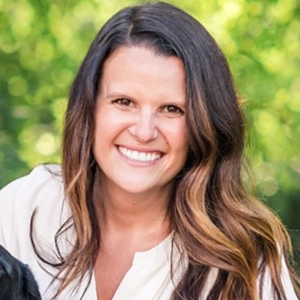The United States workforce has witnessed a seismic shift in hiring trends during the past few years — from increased digitalization and automation to a higher emphasis on company culture — but the credit union industry is adapting.
As membership grows, so, too, does the need for top talent, and credit union leaders from across the country offer insight into what has happened the past few years and how they’ve adjusted their recruitment strategies.
Application Experimentation
Mikaela Gilliam is the vice president of human resources at Langley Federal Credit Union ($5.3B, Newport News, VA).
What are the major changes in recruiting and hiring today compared to two years ago? How does that compare to before the pandemic?
MG: Perhaps less so now but we were seeing people target fully remote positions more. We’re a hybrid environment, but some positions like tellers are obviously fully in-person, so I don’t think we were always the top target for candidates. But I think that’s been changing even in just the past nine months. With more businesses issuing return-to-office mandates, competition for remote positions has increased, so people might be more willing to compromise for a hybrid schedule.

Prior to the pandemic, we did not do virtual interviews at all. During the pandemic that changed to being 100% virtual. Now, we still do virtual interviews, but we require at least one in-person meeting — usually the final interview.
How are you responding to those changes? Any advice?
MG: We are seeing fewer candidates for our open positions, so we’ve been experimenting lately.
For example, we opened the “Easy Apply” function on LinkedIn, which led to more candidates but didn’t necessarily lead to more that were truly qualified. It increased application numbers it didn’t necessarily build value.
Meanwhile, texting has become an increasingly important tool for recruiting. It’s become more successful than email or even phone calls, with people more likely to respond when we text them updates about their application. This is especially true for entry-level positions.
Communication Builds Confidence

Alyssa Fix is a talent acquisition specialist for Affinity Plus Federal Credit Union ($3.8B, Minneapolis, MN). She has more than six years of recruiting experience.
What are the major changes in recruiting and hiring today compared to two years ago? How does that compare to before the pandemic?
AF: We are seeing more applications, and it’s pretty equal for front-line positions and back-office roles. Compared to pre-pandemic, and especially in the past two years, we’re seeing people emphasize stability. Some people are looking proactively while still in their current roles because they might have concerns about the stability or longevity of their position.
One thing we could all probably agree on is that there is a stronger interest in hybrid and remote positions, particularly when it comes to more corporate back-office roles. On the other hand, though, when I’m interviewing for our branch positions, there are more people interested in being back in person full time.
How are you responding to those changes? Any advice?
AF: Since the end of the pandemic, we have been able to get back into in-person recruitment such as job fairs. This has helped us rebuild visibility and raise more awareness for Affinity Plus.
We’ve also become more intentional about communicating with recruits as we found this helps their confidence in our hiring process. One thing I emphasize with my team is making sure that we communicate in a timely manner, even if it’s a ‘no.’ Overall, things have gotten more transparent.
Power Up Your Recruitment With Policy Exchange. Browse hundreds of ready-to-use job descriptions, org charts, and more in the Callahan Policy Exchange. Then, tweak your favorites to make your recurintment as efficient as possible — no matter what’s happening in the market. Learn more today.
Flexibility Is Key

Melissa Hanes is the chief people officer at Blue Federal Credit Union ($2.1B, Cheyenne, WY) and has been a member of the team since 2005.
What are the major changes in recruiting and hiring today compared to two years ago? How does that compare to before the pandemic?
MH: More and more applicants are looking for remote work. Prior to the pandemic it didn’t seem like we had any in the credit union space wanting remote work or expecting it. Now, it seems that, no matter the position, people are looking to do the job remotely.
How are you responding to those changes? Any advice?
MH: We have been reviewing our flexible work arrangements and hybrid work arrangements to ensure we are in line with our credit union members’ needs while also being as flexible as possible.
It is a balance, and we know not all positions should or can be remote. Some of our easier-to-fill roles, such as entry-level positions, are not remote work eligible; some of our specialty or niche positions can be done remotely. It is an ever-changing atmosphere that we must be nimble and flexible with.
— Interviews have been edited and condensed.